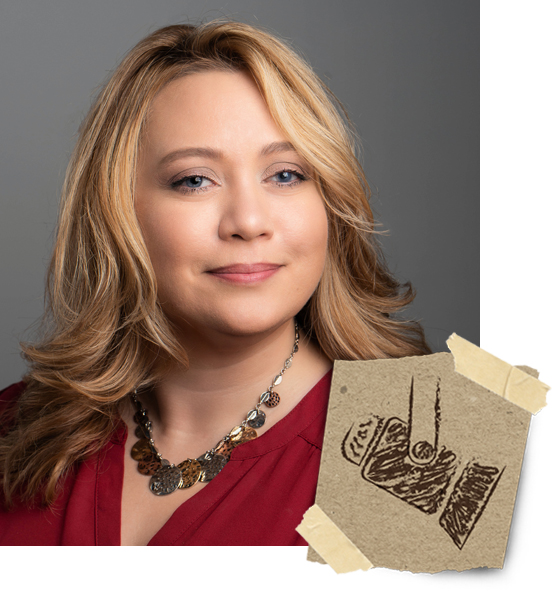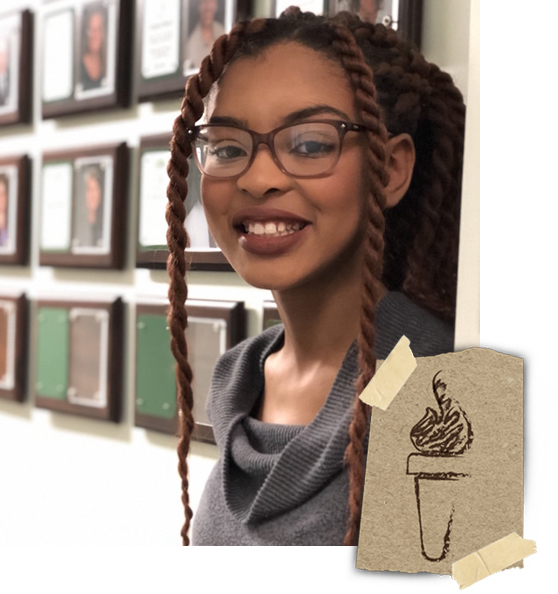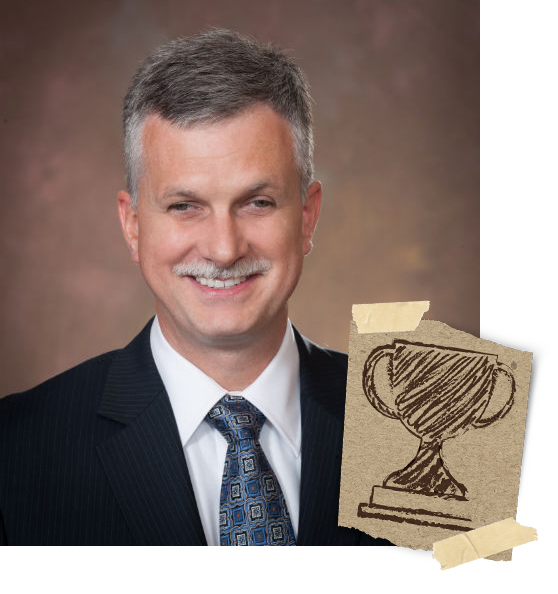Jenifer Barclay - Diversity Spotlight
July 23, 2020
 Jenifer Barclay is an alumna of the Michigan State University College of Social Science. In 2011, she earned her PhD in History, and is now an assistant professor at the University at Buffalo. Her research centers around the African-American history, slavery and disabilities, and the intersectionality of racism and ableism throughout the United States' history.
Jenifer Barclay is an alumna of the Michigan State University College of Social Science. In 2011, she earned her PhD in History, and is now an assistant professor at the University at Buffalo. Her research centers around the African-American history, slavery and disabilities, and the intersectionality of racism and ableism throughout the United States' history.
What does it mean to you to be a social science Spartan?
The years I spent at Michigan State getting my PhD were transformative for me in so many different ways. On a personal level, my years there taught me to have confidence in myself. I think more than anything, I was impacted by the role models I had there.
My PhD committee was really a dream committee: I worked with Nwando Achebe, Pero Dagbovie, Lisa Fine and Daina Ramey Berry. They influenced my research and my dissertation, and they were four of the best role models I could've ever hoped for. They are brilliant scholars and amazing people and epitomize what it means to be a professional scholar.
What are your research interests relating to disabilities?
Primarily, I'm interested in thinking about the experiences of enslaved people with disabilities. What was it like to be enslaved as a person who was, for example, deaf, blind or with a mobility impairment? How did that complicate their lives during slavery - or open up spaces for resistance?
I became interested in this topic when I was working as a research assistant for Dr. Daina Ramey Berry. I was transcribing nineteenth-century handwritten documents, "slave lists," that recorded information about enslaved people for tax purposes. These lists included the person's name, age, gender, skills and skin tone, and then there was one unnamed category tacked onto the end that occasionally had information like "deaf," "missing an eye," or "missing a limb."
As I transcribed these lists, I started thinking about what it would mean to be both disabled and enslaved. In my book, The Mark of Slavery: Disability, Race, and Gender in Antebellum America (forthcoming 2021), I argue that because slaves with disabilities were devalued from the perspective of slaveholders, they did all sorts of labor that went unnoticed. This labor often helped maintain families and communities, which was a huge contribution, as these things helped people survive the horrific experience of being enslaved.
My research also explores how disabilities and our definition of disabilities have changed over time, and how the idea of disabilities has been used as a weapon to disparage, stigmatize, and marginalize groups of people - especially Black people. There is a distinct, supportive relationship between racism and ableism.
For example, a sense of ableism often upheld a sense of white superiority in the Antebellum United States, by metaphorically associating whiteness with wholeness, able bodiedness, and sound-mindedness while connecting blackness to disability, defectiveness, and abnormality. These links manifested in the laws of slavery, medicine, and political discourse. Even popular mid-nineteenth century entertainment events such as blackface minstrel shows and freakshows linked Blackness and disability together as a way to disparage Black people.
Pro-slavery advocates of the time often argued that enslaved people were so inferior, intellectually and otherwise, that they couldn't handle freedom, and that there would be mental and physical consequences if enslaved people were freed. Disability was politicized and weaponized to continue the oppression of enslaved people and to continue slavery as an institution. These associations between blackness and disability, forged in the antebellum era, echoed in American culture long after slavery ended in 1865.
What does studying the history of disabilities tell us about how we treat people with disabilities today? How can we improve?
The history of disabilities teaches us that the definition of what it means to have a disability changes across time, locations and across cultures. This more complex, nuanced understanding demonstrates how, in some ways, we socially construct the concept of disability and what it means to be disabled.
The history of disabilities also illuminates the construction of the category of “normal” and what subjective, changing behaviors, attitudes, and beliefs are defined as "normal." There's a very clear history where this idea of "normal" emerged, and it started in the Antebellum United States. This is when the words "normal" and "normalcy" originated as tools for social control, and even today, they are still used to shame, coerce and police people's behavior. When we understand that "normal," as created as a category for human behavior, has a very limited history, we can see that term in a different, more skeptical light.
Lastly, the history of disability teaches us to re-think what we take for granted. If we are serious about embracing diversity and not doing so in a superficial way but one that addresses complex imbalances of power, we need to include disabilities in these conversations. And we need to re-frame our thinking about disability in a way that it's not an exclusively negative thing. In my research, I came across an extremely powerful quote -- "Life in a wheelchair is only a ‘problem’ in a world of stairs." If we can reimagine the world differently, in a way that is more inclusive, both socially and in terms of the spaces we live in, that will foster a better dynamic.
Read more:

Diversity Torch
Student
Jasmine Jordan
Jasmine Jordan is a senior in the College of Social Science majoring in Political Science. She is the co-president of the Council of Students with Disabilities (CSD), as well as a member of the Honors College and Social Science Scholars Program.

Diversity Champion
Faculty/Staff
Michael Hudson
Michael Hudson has been with MSU since 1992, and is currently the director of the Resource Center for Persons with Disabilities (RCPD).

Diversity Matters
We strive to cultivate an inclusive and welcoming college environment that celebrates a diversity of people, ideas, and perspectives.

